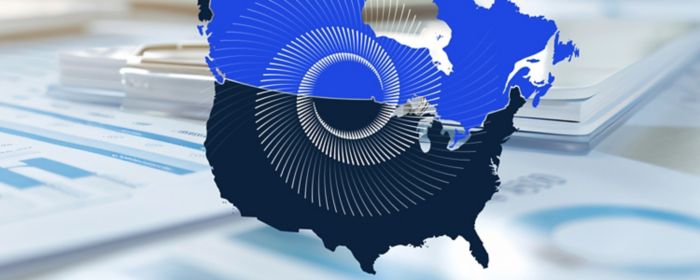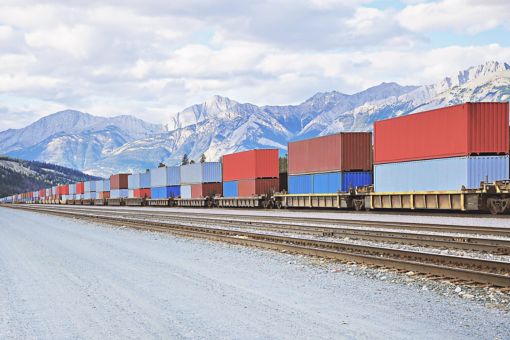With new global tariffs and increasingly complex global trade rules, one issue is rising fast: Where does a product truly come from?
Governments, consumers and companies are all asking the same question: Can we trust what it says on the label or paperwork?
Certificates of origin (COs) are at the heart of this issue, and the risk of fraud in these documents is too big to ignore.
Why certificates of origin matter more than ever
COs are foundational documents in international trade. They confirm where goods are:
- produced
- processed
- substantially transformed
They determine:
- which tariffs apply
- access to trade agreements
As governments introduce differentiated tariffs and sustainability-linked import restrictions, origin declarations have become a frontline issue for corporate integrity and operational risk, no longer just a back-office formality.
Why the risk of fraud is rising
As tariffs become more fragmented and differentiated under numerous free trade agreements, the financial incentive to manipulate origin declarations increases.
A product that qualifies as originating from a country with low or zero tariffs can result in significant savings. This can lead to a rise in origin-related fraud techniques, including:
- False declarations: Claiming that goods come from a low-tariff country when they don't
- Transshipment schemes: Routing goods through third countries to hide their true origin
- Falsified certificates: Using forged, altered or reused COs across shipments
- Overstated local content: Inflating the value of domestic processing or material inputs to meet origin thresholds.
Mitigating other reputational and legal risks at the border
Certificates of origin have traditionally been seen as trade tools, used to determine tariffs or prove compliance with trade agreements. But in today's world, where companies may be judged on the environmental and social impact of their supply chains, origin declarations are about more than just economics. They may also be other legal issues that arise:
- Environmental misrepresentation: Products may appear to comply with low-carbon sourcing policies, but they are actually produced in jurisdictions with high emissions or weak environmental laws.
- Labour and human rights concerns: Misdeclared origins can hide links to forced labour, unsafe working conditions, or poor labour rights enforcement.
- Governance gaps: A fraudulent or misleading certificate often signals broader problems with supplier transparency and ethical conduct.
New Canadian and Global regulations are raising the bar:
- Canada’s Fighting Against Forced Labour and Child Labour in Supply Chains Act (i.e., modern slavery reporting)
- U.S. Uyghur Forced Labor Prevention Act (UFLPA)
- EU’s Corporate Sustainability Due Diligence Directive (CSDDD) and Carbon Border Adjustment Mechanism (CBAM)
These laws require companies to publicly report on their efforts to eliminate unethical labour from their supply chains, efforts that depend heavily on accurate and verifiable origin data. A misdeclared certificate that obscures sourcing from high-risk regions could now trigger not just customs scrutiny, but reputational fallout and legal consequences under Canadian law.
1-in-5 Canadian modern slavery Year 1 reporters reported that they have undertaken some level of supply chain mapping. However, only 5 percent clearly indicated that this mapping extended beyond Tier 1 suppliers (also referred to as “direct”, “primary”, or “level 1” suppliers).1
Complex supply chains, limited visibility
Today, most companies operate within multi-tiered, globally distributed supply chains. This makes it hard to:
- Spot fraud
- Catch honest mistakes due to misunderstandings or misclassifications
Origin rules are technical. They may involve:
- Value thresholds
- Sourcing combinations
- Transformation criteria
Even companies trying to do the right thing can get it wrong – if their processes aren't strong enough.
What's at stake?
The consequences of fraudulent origin declarations include:
- Legal penalties
- Customs fines
- Exclusion from trade programs
- Reputational damage
- ESG reporting issues
- Supply chain disruptions
- Loss of investor confidence
Transparency is everyone's responsibility
Maintaining the integrity of origin claims requires cross-functional effort:
- Sustainability teams, who rely on accurate origin data for ESG reporting
- Procurement, who must vet suppliers based on both price and credibility
- Trade, legal and compliance, who have to ensure that origin claims hold up under scrutiny
- Supply chain and logistics, who manage the physical flow and documentation of goods.
Governments are also enforcing stricter regulations, often focusing less on intent and more on the impact of misstatements on consumers and public perception.
80% of Canadian business leaders say they will be impacted by U.S. tariffs.2
What to watch for
Detecting risk early is critical. Certain behaviors or patterns may signal an increased risk of origin fraud.
For example:
- Suppliers who cannot or will not provide documentation tracing inputs or manufacturing processes may indicate poor transparency – or worse – deliberate concealment.
- Sourcing from regions linked to forced labour or known transshipment hubs should trigger increased due diligence.
- A lack of visibility into lower-tier suppliers can create significant exposure. Without traceability back to the point of origin, companies may be unable to verify compliance with legal, ethical or trade-related requirements.
What helps:
- Build red-flag indicators into your workflows
- Train teams to recognize patterns
- Treat origin risk as a core business risk
The way forward: From reactive to responsible
Considerations for your leadership team
- Do your purchase agreements have language that requires your supplier provide a certificate of origin? Does that language cover any recourse your company can take if the certificate is proven false or otherwise faulty?
- Do your sales agreements promise your customers certificates of origin as a part of the sale? What safeguards do you have in place to ensure that your company only issues valid certificates? Can your customers take action against your company for faulty documents?
- Are your COs aligned with the rules of origin for the trade agreements you rely on (e.g., CUSMA, CPTPP, EU Free Trade Agreements)?
- Have you experienced any customs challenges or tax penalties related to CO documentation or origin misstatements?
- Do you maintain adequate documentation to substantiate origin claims in case of an audit? How quickly can you retrieve and verify COs during a shipment delay or audit?
- How confident are you in the accuracy of origin information provided by your suppliers?
- Are COs being used to substantiate environmental or ethical claims (e.g., low-carbon sourcing, ethical production)?
- Are you exposed to goods from restricted or high-risk jurisdictions where enhanced due diligence is required?
- Do you verify or audit the origin-related practices of your Tier 2 or Tier 3 suppliers?
- Is your team equipped with the knowledge to identify potentially false or manipulated COs? Do you have internal reporting mechanisms to quickly and effectively address such concerns?
To stay ahead of change, companies must shift from reactive compliance to proactive origin management.
Here's how:
- Map supply chains beyond Tier 1 suppliers
- Conduct a trade and customs health check on internal processes
- Audit supplier declarations and documentation
- Invest in digital traceability tools
- Train your staff on origin rules and risk indicators
- Integrate origin validation into procurement and due diligence workflows
This article was originally published by Bob Dillen, Partner, Head of Forensic, KPMG Switzerland and has been modified by the authors listed below for a Canadian audience
- Modern slavery reporting for 2025, KPMG in Canada, April 2025
- Navigating trade and tariffs, KPMG in Canada, 2025
Insights and resources
Connect with us
Stay up to date with what matters to you
Gain access to personalized content based on your interests by signing up today
Connect with us
- Find office locations kpmg.findOfficeLocations
- kpmg.emailUs
- Social media @ KPMG kpmg.socialMedia






